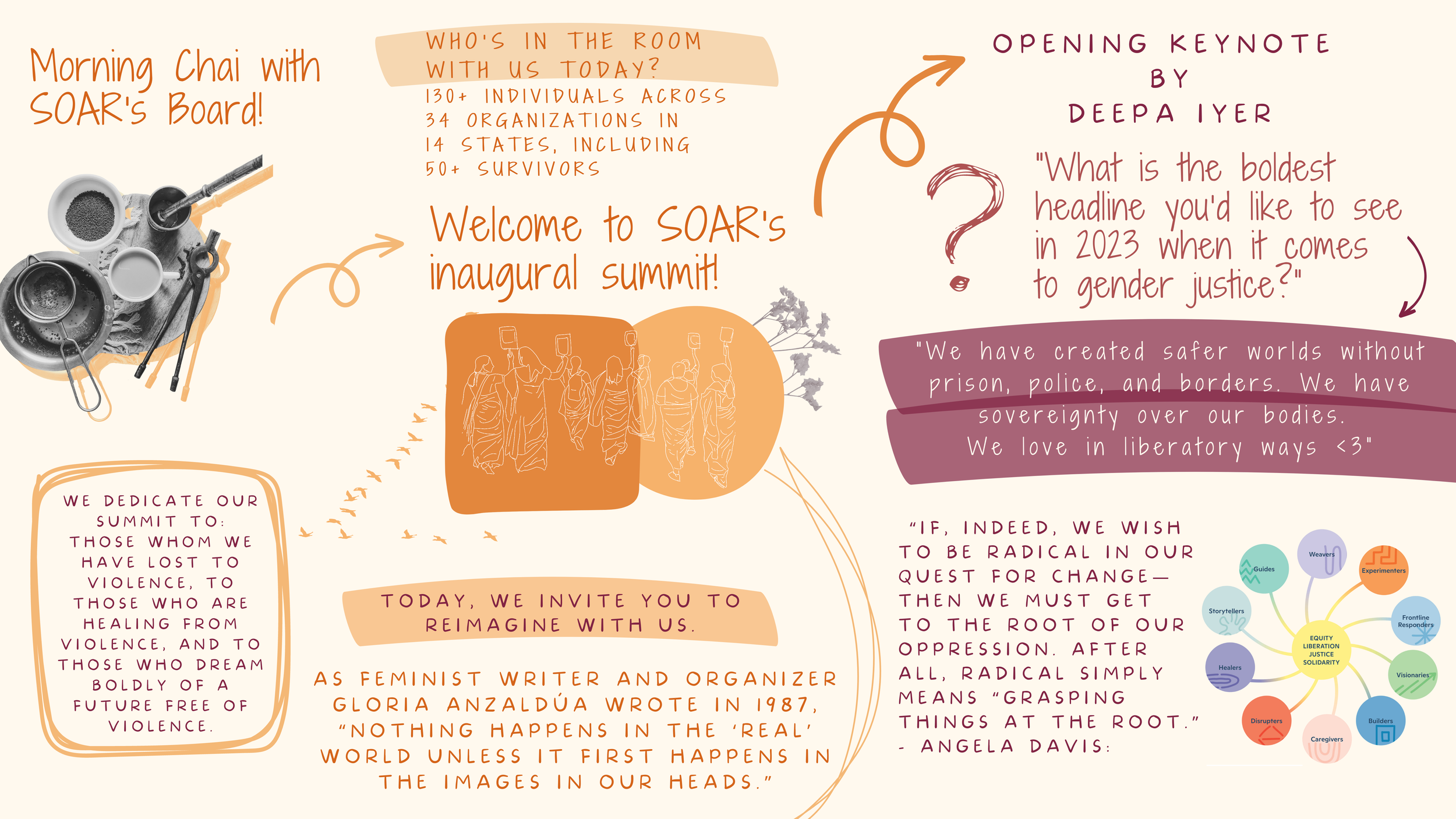Inaugural National Summit Recap | Part 1
One month ago, we held our inaugural summit—convening over 130 leaders across the South Asian gender-based violence movement in the US to connect, learn, and strategize. Although our summit was closed to our members, the learnings from the summit are crucial to share beyond the members, as they contribute to our broader movement towards gender and survivor justice.
The day began with a networking chai, hosted by SOAR’s Board Members Navneet Bhalla, the Executive Director of Manavi in New Jersey, and Aparna Bhattacharyya, the Executive Director of Raksha in Georgia. In this informal space, we brought together those who had been in the field for more than 20 years and less than 1 year. These individuals, who joined in from all over the US, shared their memories of past convenings and aspirations for the future.
After the morning chai, we officially began the summit with a welcome by the SOAR team, and then an opening keynote by writer, strategist, and lawyer Deepa Iyer. Deepa kicked off her talk by posing a thought-provoking and energizing question to the audience: “What is the boldest headline you’d like to see in 2023 when it comes to gender justice?” We heard responses such as: Trans Leaders Overcome Anti-Trans Bills Across Southern States, Guaranteed Income Program for Communities Earning Less Than a Thriving Wage, and GBV Survivors No Longer Carry the Burden of Ending Abuse.
Deepa then guided us through her tool: the Social Change Ecosystem Map encouraging us to think about how we can use it as individuals, as organizations, or as a network. When Deepa polled the audience, a majority of attendees saw themselves as frontline responders, but participants also quickly pointed out the overlap in roles, especially across responders, caregivers, and healers.
She then guided us to think about how we might work together towards systems change, sharing with us a quote from Angela Davis: “If, indeed, we wish to be radical in our quest for change—then we must get to the root of our oppression. After all, radical simply means “grasping things at the root.” And, finally, we closed with a reflection on our ecosystem of well-being, as the work cannot be done if individuals are not well, sustained, and supported.
Watch a replay of the summit here! And, read Part 2 and Part 3 of our recap series here!

